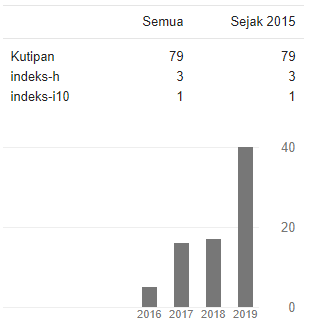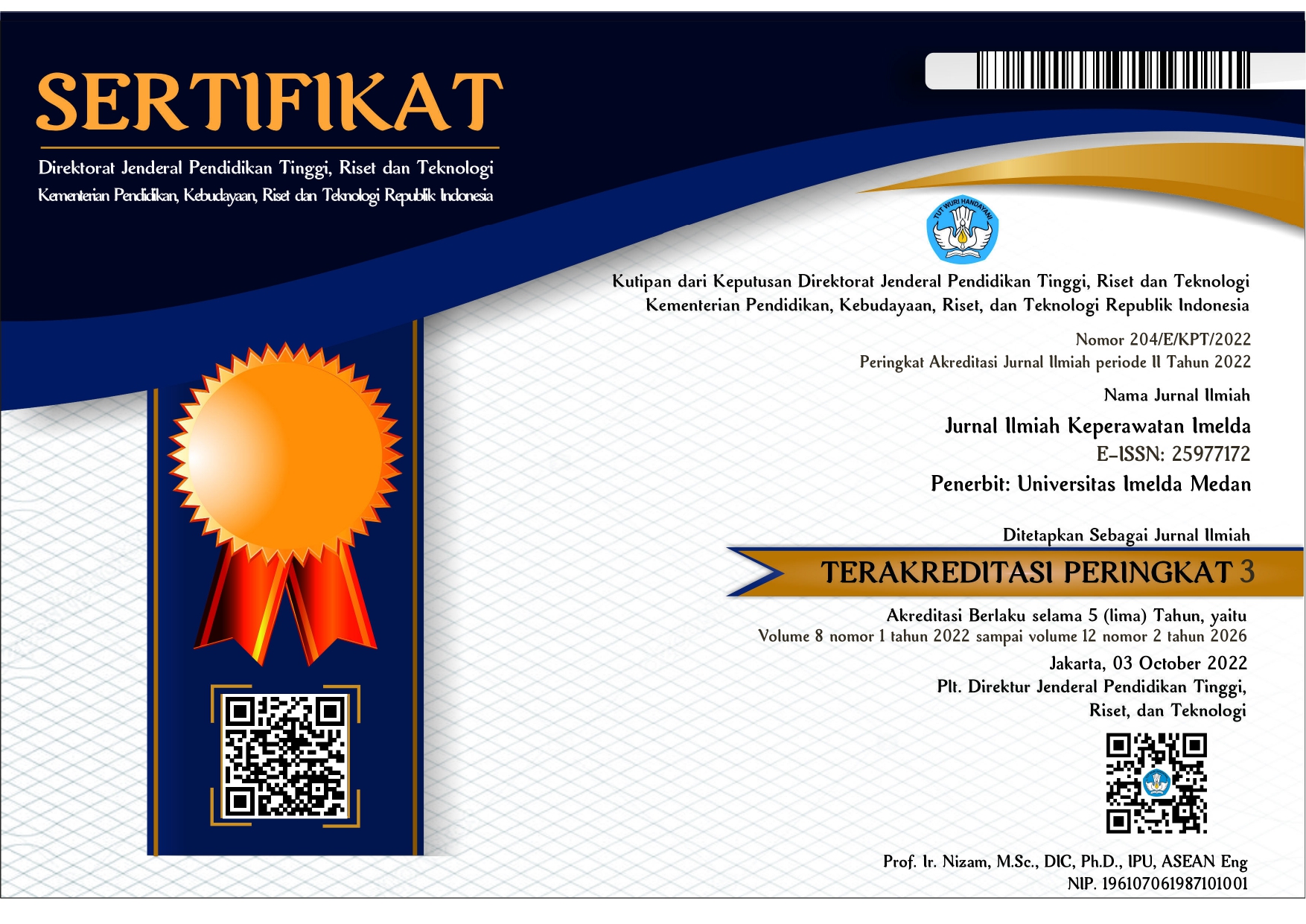FAKTOR-FAKTOR PENYEBAB KEGAGALAN PENGOBATAN TBC PADA PENDERITA TBC DI RSU IMELDA PEKERJA INDONESIA
DOI:
https://doi.org/10.52943/jikeperawatan.v8i2.1043Keywords:
Drug Resistance, Anti-Tuberculosis Drugs, OAT ResistanceAbstract
Indonesia's target to eliminate TB in 2010 was not achieved and was pushed back to 2030. The achievement of the target for the percentage of TB detection and treatment in North Sumatra in 2016-2019 has been achieved but has decreased in 2020. There is also the problem of increasing cases of Drug Resistant TB (TB). RO) while TB RO service facilities are still limited in districts and cities. In this study, researchers describe the inhibiting factors of the TB Control Program, especially in North Sumatra and recommend solutions in resolving these inhibiting factors. The method in this study is a Case Study with a single holistic case study. Participants from this study were 9 (nine) people. The phenomena studied are the inhibiting factors in the TB control program and the sources that can be used to solve the problem. Data were collected by interview using a modified question instrument according to developments in the interview process. The inhibiting factors found were discussed using Learning Organization Theory to find a solution. The study found 5 (five) themes from the interviews. From the five themes, it was found that the inhibiting factors of the TB Control Program in North Sumatra, namely (1) the use of SITB which had not been widely socialized so that the data utilization was not optimal, (2) the lack of personnel to carry out direct observations of patient compliance with medication, (3 ) there is no policy that regulates the involvement of the private sector, (4) there is no systematic integrated planning governing cross-sectoral collaboration between TB program managers and other work units in government, (5) socialization of TCM utilization has not been optimal. Control of TB in North Sumatra stems from the implementation of evaluations that have not been optimal and the systematic and measurable program has not been structured that can involve various parties in supporting the management of the TB program. TB managers in North Sumatra need to develop programs that are able to involve various parties with periodic and measurable evaluations. The involvement of various parties with systematic and measurable programs is an opportunity that will support the success of the TB program in North Sumatra.
Downloads
References
Direktorat Jenderal Pengendalian Penyakit dan Penyehatan Lingkungan (Dirjen P2PL). (2011). Pedoman Nasional Pengendalian Tuberkulosis. Kementrian Kesehatan Republik Indonesia.
Inayah, S., & Wahyono, B. (2019). Penanggulangan Tuberkulosis Paru dengan Strategi DOTS. Higeia J Public Heal Res Dev, 3(2), 223–233.
Pedoman Nasional Penanggulangan Tuberkulosis Edisi 2, 13 (2011).
Pedoman Manajemen Pelayanan Kesehatan, (2014).
Tuberkulosis ( TB ), (2018).
Nuraini, N., Naziah, N., & Zainaro, M. A. (2018). Pengalaman Putus Obat Pada Klien Tb Yang Mendapatkan Pengobatan Oat Dengan Strategi Dots Di Rs Umum Kabupaten Tangerang Tahun 2016. Jurnal JKFT, 3(2), 70.
Ozer, E. K., Goktas, M. T., Toker, A., Pehlivan, S., Bariskaner, H., Ugurluoglu, C., & Iskit, A. B. (2017). Thymoquinone protects against the sepsis induced mortality, mesenteric hypoperfusion, aortic dysfunction and multiple organ damage in rats. In Pharmacological Reports, 69(4).
Sarwono, S. (1993). Sosiologi kesehatan, beberapa konsep beserta aplikainya. Gajah Mada University Press.
Sundari, A. R., Simbolon, R. L., & Fauzia, Dina, G. (2017). Faktor-Faktor Yang Mempengaruhi Tingkat Kepatuhan Pasien Terhadap Pengobatan Tuberkulosis Paru di Lima Puskesmas Se-kota Pekanbaru. Jurnal Online Mahasiswa Fakultas Kedokteran Universitas Riau, 4(2), 1–20.
Tjokroprawiro, A., Setiawan, P. B., Santoso, D., & Soegianto, G. (2015). Buku Ajar Ilmu Penyakit Dalam.









